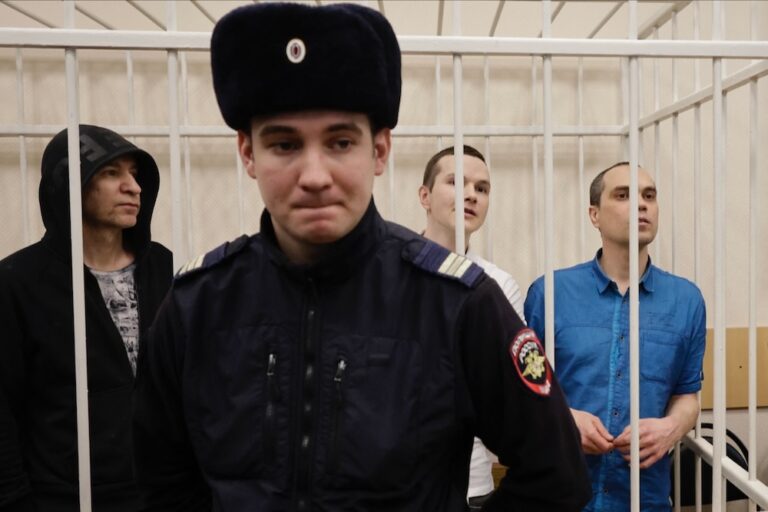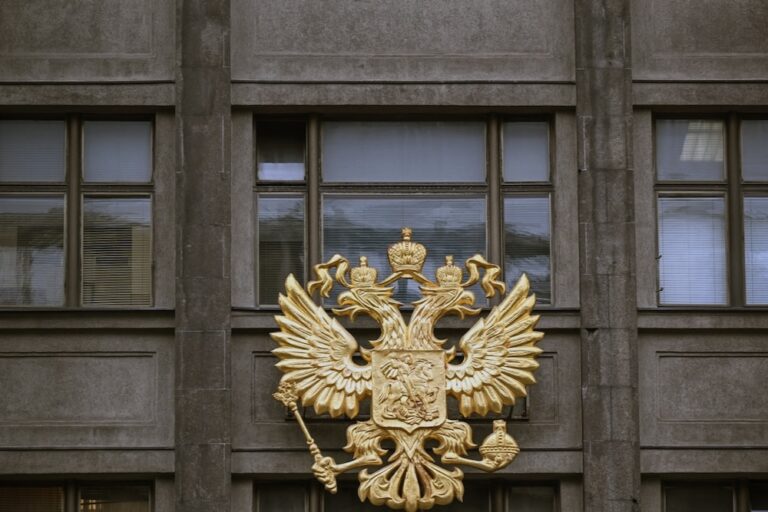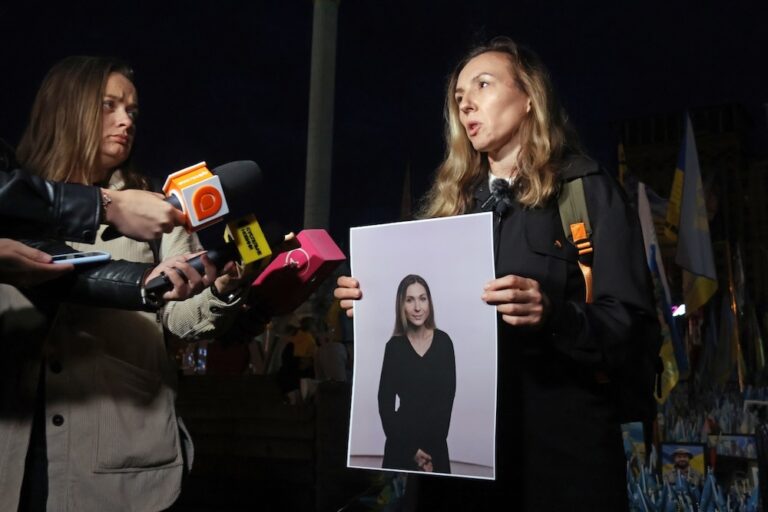(RSF/IFEX) – RSF and Greenpeace, a non-government organisation for the protection of the environment, wish to draw the case of Russian journalist Grigory Pasko to the attention of the Council of Europe. **Updates IFEX alerts of 17 February 1999, 14 October, 21 May and 11 May 1998** A correspondent for the Russian Pacific Fleet’s newspaper, […]
(RSF/IFEX) – RSF and Greenpeace, a non-government organisation for the
protection of the environment, wish to draw the case of Russian
journalist
Grigory Pasko to the attention of the Council of Europe.
**Updates IFEX alerts of 17 February 1999, 14 October, 21 May and 11 May
1998**
A correspondent for the Russian Pacific Fleet’s newspaper, Boevaya
Vakhta,
Pasko has been in custody at the Vladivostok high-security jail, in the
far
east of Russia, since 20 November 1997. He has been officially charged
with
“collecting state secrets with the aim of passing them on to a foreign
organisation.” His trial opened on 14 October 1998 and is continuing in
camera before the Vladivostok military court. The journalist faces a
prison
sentence of between 15 and 20 years if convicted.
In 1993, when he was a military correspondent on board the Russian oil
tanker TNT 27, Pasko was seen filming ammunition and liquid radioactive
waste from Russian nuclear submarines being emptied into the Sea of
Japan
off the coast of Vladivostok. The film was broadcast on Japanese
television
and widely reported in the rest of the media, causing a national outcry.
In
October the same year, a Greenpeace ship also filmed liquid radioactive
waste being poured into the Sea of Japan, and measured pollution levels
in
the area. The Greenpeace move was one of a series of operations aimed at
highlighting the appalling management of radioactive waste from Russian
submarines, both in the Kara sea and off the east coast of Russia. As
far as
we are aware, the scenes filmed by Pasko were not state secrets at the
time.
Pasko has also written about 100 reports on pollution due to the neglect
of
nuclear submarines by the Russian navy and the involvement of the
Russian
secret service (FSB, the former KGB) in nuclear waste trafficking.
RSF believes that Grigory Pasko’s work is protected by Article 10 of the
European Convention on Human Rights, which Russia has signed and which
stipulates that “everyone has the right to freedom of expression.” This
right includes the freedom to receive and pass on information and ideas
without interference from governments and regardless of borders. Under
the
terms of Articles 41 and 42 of the Russian Constitution, the withholding
of
information concerning the environment and incidents or disasters that
put
human lives in danger is against the law. Such offences are punishable
by up
to five years’ imprisonment (Article 237 of the penal code). Moreover,
Articles 5 (paragraph 3) and 6 of the European Convention guarantee the
right to a fair trial within a reasonable period of time. Yet Pasko has
already spent fifteen months in “preventive detention.” His wife has not
been allowed to visit him for over a year. He is apparently sick and has
lost weight, and is still being kept in solitary confinement.
According to Greenpeace, the work of Pasko, like that of Alejsandr
Nikitin,
a former captain accused of giving information to a Norwegian ecological
organisation, is vital to prevent further environmental disasters. The
circumstances in which nuclear waste is stored and disposed of in Russia
is
extremely worrying. In the grip of economic crisis, the Russian state
cannot
face up to its obligations concerning nuclear safety and the temptation
is
great for some departments with an authoritarian past to simply opt for
complete silence.
In addition to the people of Russia, citizens of neighbouring countries
may
have to suffer the consequences of radioactive pollution on a large
scale.
Greenpeace wishes to defend Pasko because the organisation believes that
objective reporting on ecological hazards are essential for a planet
where
national boundaries provide no protection from environmental damage.
Recommended Action
Send appeals to the Secretary-General of the Council of Europe:
Europe,
to use all his influence to secure the immediate release of Grigory
Pasko
Appeals To
Mr. Daniel Tarschys
Secretary-General of the Council of Europe
Strasbourg, France
Fax: +03 88 41 27 99
Please copy appeals to the source if possible.


